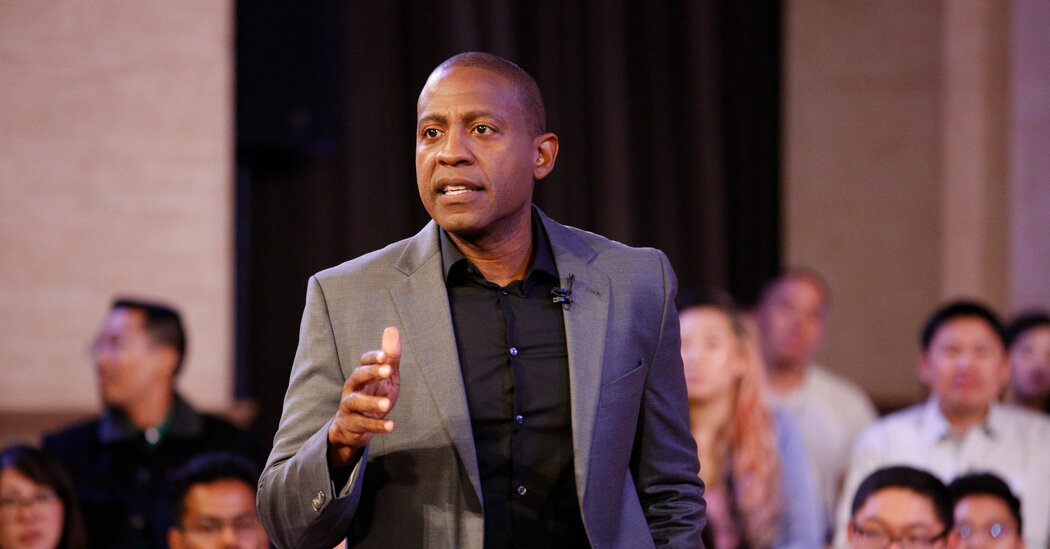The Justice Department and the Securities and Exchange Commission have opened investigations into the embattled Silicon Valley company Ozy Media, according to people with knowledge of the matter.
Federal prosecutors with the Eastern District of New York have in recent weeks been in contact with at least one company that had dealings with Ozy, two people with knowledge of the matter said. In the parallel civil inquiry, S.E.C. investigators have contacted at least two companies that discussed investing in Ozy, two people with knowledge of the commission’s effort said.
The precise focus of the investigations could not be determined. A lawsuit filed last month accused Ozy of misleading potential investors. Companies’ statements to investors are often examined in S.E.C. investigations.
Carlos Watson, Ozy’s chief executive, referred to the investigations in an emailed letter to investors last month. In the email, which was reviewed by The New York Times, Mr. Watson wrote that Ozy had “heard from” the S.E.C. and the Justice Department, adding that the company had enlisted the law firm Zuckerman Spaeder “to help us navigate the investigations.”
Since that email, Ozy has enlisted Andrew Levander, the chairman of the law firm Dechert, a person with knowledge of the matter said.
Mr. Watson and Mr. Levander did not respond to emailed inquiries.
A spokesman for the Eastern District of New York said he could not confirm or deny the existence of an investigation. A spokeswoman for the S.E.C. declined to comment. The investigations are at an early stage, and it is unclear whether they will lead to charges.
Ozy Media said on Oct. 1 that it was shutting down, shortly after The Times reported that someone at the company had apparently impersonated a YouTube executive during a conference call with Goldman Sachs, which was considering an investment. On the call, the impersonator said that YouTube had a great working relationship with Ozy, and that Ozy’s videos were successful on the platform.
Nov. 10, 2021, 7:11 p.m. ET
Mr. Watson said at the time that the impersonator was Samir Rao, the company’s chief operating officer. He repeated that in his email to investors last month, adding that Mr. Rao was no longer with the company. Mr. Rao has not replied to requests for comment.
Since announcing that it was shutting down, Ozy has taken steps toward a return, sending out an emailed newsletter on the day’s news to subscribers. In the email to investors, Mr. Watson said Ozy had made mistakes but was hoping to make a full return next year. He added that the company had more than $10 million in cash.
Mr. Watson and Mr. Rao founded Ozy in 2013, with financial support from high-profile investors including Laurene Powell Jobs. They billed Ozy as a new-wave media company focused on “the new and the next,” and it produced a general interest website, podcasts, talk shows, documentary videos and festivals.
Goldman Sachs walked away from its potential investment in Ozy after it discovered that it had been misled during the conference call, which took place in February. Goldman Sachs alerted YouTube’s security team. Google, the owner of YouTube, contacted federal authorities, two people with knowledge of the matter said.
An investor in Ozy, LifeLine Legacy Holdings, a fund management company in Beverly Hills, Calif., sued Ozy last month, accusing it of “fraudulent conduct.” The suit said LifeLine had put $2.25 million into the company after Ozy’s executives said Goldman Sachs and Google planned to invest. Neither company made an investment in Ozy. Goldman Sachs and Google declined to comment.
Mr. Watson said in his email to investors that Ozy was “taking a very deliberate approach with the media going forward” in the belief that “it is best not to aggravate social media activity by responding to any and all inquiries designed to provoke additional rounds of coverage.”
